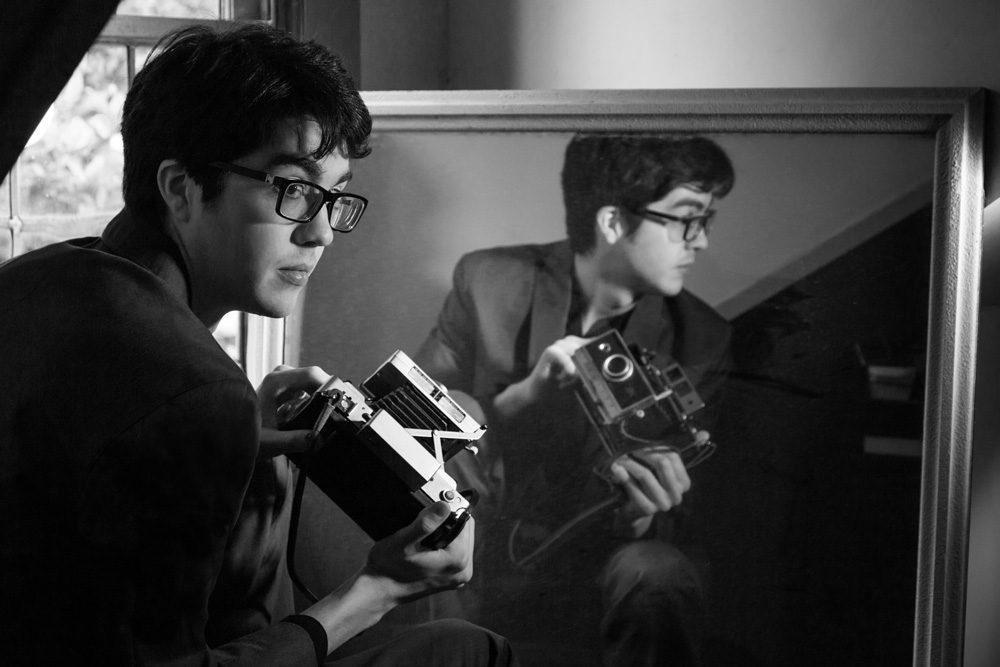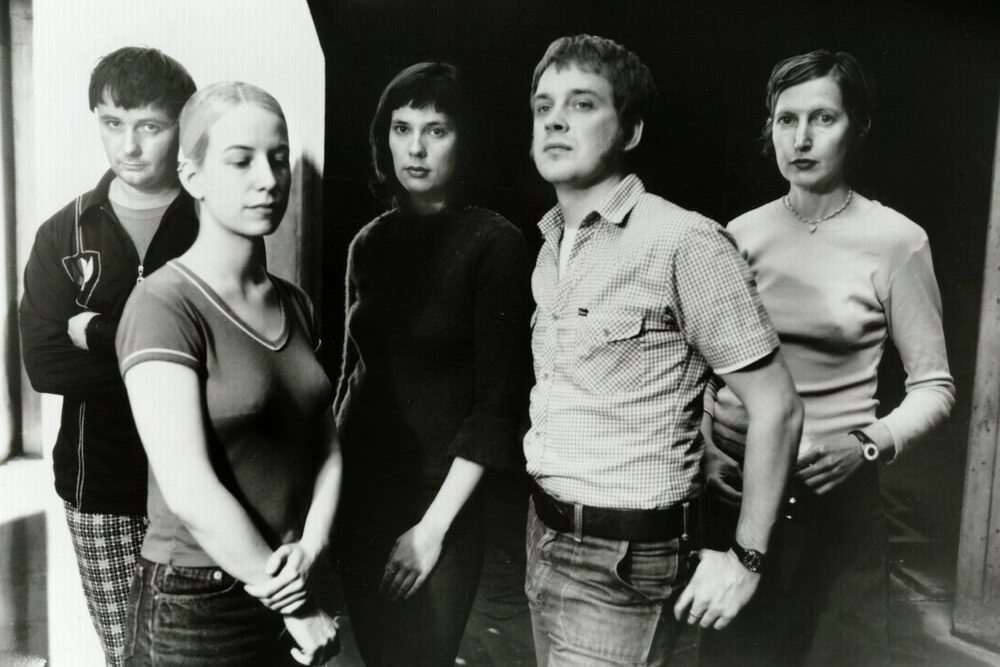

I graduated high school in 2010, which means I have been an adult for the entirety of the decade, according to “society.” I spent six of those months in high school, three and a half of those years in college, four of them working at an office job that I thought I’d never leave, and the past year and a half freelancing and making small amounts of progress toward my creative goals. I spent approximately nine of these months absolutely heartbroken, those same four years in that office vacillating in and out of anxiety. I also started doing improv and quit doing improv, and it took about seven years to figure out that I am not a natural performer.
Will Toledo began Car Seat Headrest in 2010, recording alone in his parents’ car, lest he be heard by anyone. He recorded four albums named for four numbers, two whose album art is a picture of – you guessed it – a car seat headrest, and diligently uploaded them to Bandcamp. He went to college, didn’t get out much. One more album after those four, and one college transfer later, Will Toledo wrote Twin Fantasy, an album about being absolutely heartbroken. Then he signed with Matador, and produced two more albums, had a well-publicized legal issue with The Cars’ Ric Ocasek, and then recorded Twin Fantasy again, and did a whole lot of touring, which is basically a day job.
I think Will Toledo and I are about the same age. Millennials get a lot of crap for their extended adolescence, though it’s the economic collapse of our actual adolescence that eventually made it harder for us to grow up. Well into my twenties, I put my entire trust in the fact that the adults around me knew exactly the right thing to do. In reality, nobody has anything figured out! Nobody! There is no clear answer to anything in life. Time is linear, but life is not always. You can change a lot in a decade.
Of the albums Car Seat Headrest recorded this decade, it is Teens of Denial that speaks generationally. Released in 2016, Teens of Denial was the first fully new Car Seat Headrest album since signing to Matador in 2015. It was also my personal album of the year. Two years out of college and the world had never seemed crueler. Certainly globally so, but also on an individual level. In your darkest hour, everything feels like a personal attack.
Teens of Denial is a straight-up rock album, but it isn’t about sex (well, sort of), it isn’t about drugs (only kind of), and it isn’t about rock and roll (Ric Ocasek almost stopped this album from being released, but Dido didn’t mind being quoted). And with regards to personal attacks, the protagonist of Teens of Denial is accosted by Jesus himself. Jesus calls him “the scum of the earth,” on “(Joe Gets Kicked Out of School for Using) Drugs With Friends (But Says This Isn’t a Problem).”
The internal world of Teens of Denial is vast and complicated, often contradictory. On the dense and percolating “Vincent,” the protagonist laments, “If I’m being honest with myself / I haven’t been honest with myself.” “Vincent” was the lead single, a non-obvious choice, but one that functioned as an introduction to the album’s headspace: over seven minutes long, and obliquely about the protagonist’s mental state (“In the back of a medicine cabinet / you can find your life story / and your future in the side effects”).
Toledo stopped hiding behind vocal distortion on this album. He’s here, voice cracks and all, and ready to shout about how people talk down to him: “You have no right to be depressed! / You haven’t tried hard enough to like it!” The arrangements are huge and full; the production is so much clearer than even his previous Matador release, Teens of Style, which compiled some of Toledo’s best Bandcamp cuts.
If it weren’t evident enough already, Teens of Denial has a wicked sense of humor. The scrapped version of “Not What I Needed” started with The Cars’ “Just What I Needed” riff and ended with the straight-faced first few lines of its lyrics. Like a coming-of-age movie, it’s this levity that counterbalances the album’s big emotional payoffs. “Drunk Drivers/Killer Whales,” starts steady and unassuming, but crescendos to the big declaration of “It doesn’t have to be like this.” And it doesn’t! “It doesn’t have to be like this” can mean a lot of things. In the context of the song, it’s the protagonist making a decision that would keep him from danger. To realize he’s too drunk to drive and so, “get out of the car and start to walk.”
Earlier in the decade, in 2011, Will Toledo released Twin Fantasy under the name Car Seat Headrest. In 2018, he released the same album, re-recorded with a full band, under the name Car Seat Headrest. This isn’t a case where hindsight is 20/20: it’s more that hindsight brings out new dimensions. Matador states the difference thusly: “he no longer sees his own story as a tragedy.”
Yes, you can have second chances. It’s called artistic growth! Look it up! Twin Fantasy (2011) is rough around the edges in that way that evokes desperation, a need to throw your heart at the person who hurt you. It rules; as someone who lives and dies by lo-fi, I was a fan. 2018 Twin Fantasy, now titled Twin Fantasy (Face to Face), sounds clearer, but the lyrics are left emotionally unpolished, teenage in their sentiments. To admit flaw is to admit humanity.
A newfound confidence runs through Twin Fantasy (Face to Face). Car Seat Headrest, the band, shines on every single track. The sprawling “Beach Life-In-Death” benefits greatly from frenetic drumming. Guitars lacerate and bring teenage Toledo’s wobbly infatuation to life. A newly audible bass line caresses the melody of “My Boy.” The band builds gloom on “Famous Prophets” and brings finality on “Twin Fantasy.” Where the old “Bodys” had the detachment of being too cool (or too awkward!) to dance, the new track gradually crescendos, careening like an underage drunk. Suddenly, this story is cinematic. Suddenly, this story has a heartbeat, and muscles, and arms to be held in. It’s the sound of someone feeling less alone than they felt seven years earlier.
Because what’s a coming-of-age story if you haven’t come of age yet? The protagonist of Twin Fantasy (Face to Face) repeatedly sings “The ocean washed open your grave.” This story still hurts. It always will. But he’s made peace with it now. After looped vocal reverb, the spoken word part of the last track alludes to the “fantasy” part of “Twin Fantasy:”
This is the end of the song, and it IS just a song. It’s a version of me and you that can exist outside of everything else, and if it is just a fantasy, then anything can happen from here. The contract is up, the names have been changed. So pour one out, whoever you are. These are only lyrics now.
In my own interpretation, Twin Fantasy is about falling for the idea of a person, rather than an actual person. That distance and circumstance may keep you apart–you may never meet again, but you can always sing his first name aloud, trying to make it fit in with the lyrics of “Ana Ng,”a song about falling for a person living very far away from you. This last spoken word monologue is the album’s movie disclaimer, the “any resemblance to actual persons living or dead is purely coincidental” blah blah blah. These are only lyrics now. The credits roll, the lights come up, and Twin Fantasy is a story in past tense.

This December, we’re going to act like ten years isn’t a really long time, but it is. You can change a lot in a decade. I certainly stumbled back onto my own path. I think Will Toledo did too. Car Seat Headrest began the decade a solo act, and ended it a full band, signed to Matador. The Twin Fantasy tour welcomed the band Naked Giants as additions to live Car Seat Headrest, arrangements stretching to create new contexts for old songs. Will Toledo ditched the guitar for most songs, embracing his role as a performer. This year Will Toledo also produced Stef Chura’s fantastic record, Midnight. That’s a world’s difference from recording Twin Fantasy in your bedroom (or your parents’ car).
This isn’t a scenario where someone older than you is telling you exactly what to do about jobs, or heartbreak, or how you’re feeling (“Get a job / eat an apple / it’ll work itself out”). It’s a scenario where someone your own age is saying “hey dude, me too.” It’s so much better to realize we’re all lost sometimes. To quote the song quoted in “Cute Thing:” “And the truth is, we don’t know anything.”
Ten years is a long time. Ten years can hold artistic growth, and periods of despair, and love and stress alike. Not necessarily in that order. Get out of the car and start to walk.




